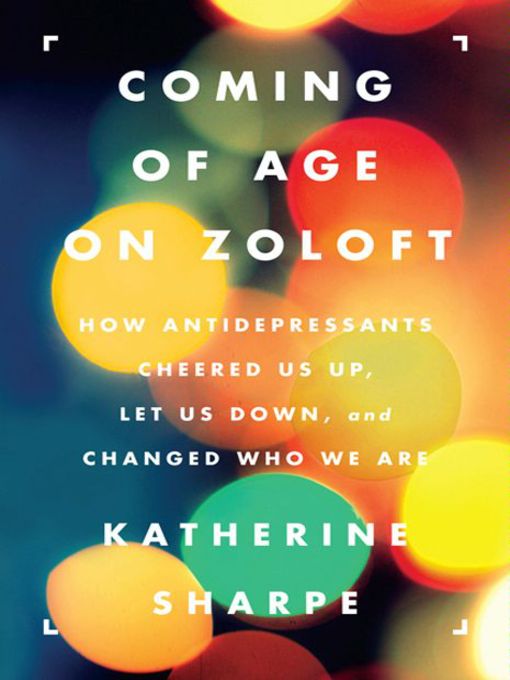
Coming of Age on Zoloft
How Antidepressants Cheered Us Up, Let Us Down, and Changed Who We Are
کتاب های مرتبط
- اطلاعات
- نقد و بررسی
- دیدگاه کاربران
نقد و بررسی

April 9, 2012
Drawing on 40 interviews with individuals aged 18–40 and an extensive reading of professional and popular articles, former Seed magazine editor Sharpe takes a close look at members of her generation who came of age with new antidepressants such as Prozac and Zoloft. Sharpe herself used such drugs after a mini-breakdown in college and says they made her feel “dull and flattened in one way... revoltingly attuned in another.” Sharpe is excellent at detailing the positives and negatives of these drugs: they can relieve depression, and patients can learn to turn the drug from a crutch into a “tool,” controlling it rather than letting it control them. But the drugs can also promote “a kind of emotional illiteracy, “prevent me from asking or noticing the reasons I felt bad....” She is also good on the importance of exercise, sleep, and diet on alleviating depression. But she is best at probing broader societal issues. In an age so focused on mental health, psychologist David Ramirez tells Sharpe, “there’s almost not a language of normal distress.” This is a fine book that nicely weaves together personal, sociological, and philosophical perspectives for a thoughtful view of how antidepressants are shaping many people’s lives. Agent: Eva Talmadge, Emma Sweeney Agency.

April 15, 2012
A knowing account of what it is like to grow up on psychiatric medications. After a 20-minute session with a counselor during college, former scienceblogs.com editor Sharpe was prescribed Zoloft, and for most of the next 10 years she continued on antidepressants. That experience was not unusual in her generation, nor is it among young people today. The author questions the effect of such medication on adolescents who have not yet fully developed a sense of self. Antidepressants, she writes, got her moving, but they failed to give her the sense of direction that talk therapy later provided; she deplores the decline in access to talk therapy, a powerful complement to drug therapy. Sharpe interviewed or corresponded with dozens of other people about their experiences growing up on antidepressants, and their stories reveal a range of reactions. For some, the judgment that they had a chemical imbalance in the brain came as a relief, freeing them from a feeling of blame; for others, it made them feel like freaks. Besides her personal story and those of her interviewees, Sharpe provides a history of antidepressants, a revealing look at the politics behind the evolution of the Diagnostic and Statistical Manual of Mental Disorders and an account of the rise of the biomedical model of mental illness, which holds that disorders like depression have biological causes and can be managed with pharmaceuticals. She also analyzes the effects of direct-to-consumer advertising by drug companies on the demand for antidepressants and the role of health insurance in determining patients' access to therapy modalities. Balanced and informative--an education for any parent considering psychiatric medication for a troubled adolescent.
COPYRIGHT(2012) Kirkus Reviews, ALL RIGHTS RESERVED.

August 1, 2012
This first book by Sharpe, previously the editor of Seed magazine's ScienceBlogs.com and the online editor of ReadyMade, is part memoir, part historical inquiry, and wholly a philosophical discussion on the widespread use of antidepressants among young people in the United States. Sharpe begins with an introduction covering the increasing popularity of antidepressants over the last few decades and, throughout the text, proposes that both medical practitioners and their clients should more carefully scrutinize the use, and distribution, of antidepressants. Sharpe mostly succeeds in balancing scientific data from reputable sources with personal narration, even if at times her prose--especially when discussing identity and youth--can stray into sounding overly ponderous. VERDICT Especially appropriate for Generation Y and millennial readers, this accessible and generally well-written work addresses important medical and psychological issues. It would make an excellent supplemental text for college-level courses in sociology, psychology, human development, and medical anthropology; the deeply personal story adds a human dimension to a controversial topic.--Rebecca Marrall, Western Washington Univ. Libs., Bellingham
Copyright 2012 Library Journal, LLC Used with permission.

























دیدگاه کاربران